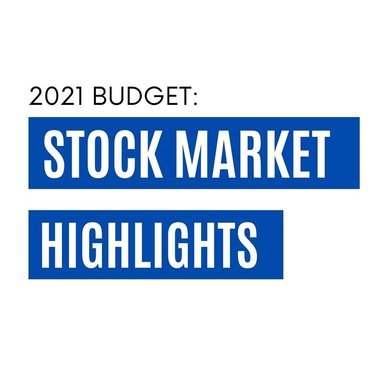How the 2021 Budget will affect Investments and the Stock Market
How the 2021 Budget Will Affect Investments and the Stock Market

Chancellor Rishi Sunak’s new 2021 Budget’s main aim is to restart the UK’s economy after lockdown. The new Budget has a lot more detail relating to personal finance and investing than last year’s budget. This article outlines how some of the key measures will affect your investments and the stock market.
Other areas we are covering:
What Self-Employed Professionals Need to Know About the BudgetProspective Buyers Guide to the 2021 Budget
How will the 2021 Buget affect High-Net Worth Individuals?
What the 2021 Budget means for Corporates
Areas of the 2021 Budget that are aimed at supporting minorities
What the 2021 Budget means for the creative industry
Tax Changes For Investments
The chancellor has set out a plan to raise corporation tax to 25% from 1 April 2023, which will only apply to company profits above £250,000. Multiple reports suggest that the rate will be gradually lifted across the course of the parliamentary term, which is therefore somewhat higher than investors might have been expecting.
Companies who have profits below £50,000 will remain at the current 19% rate, with a taper introduced up to £250,000. According to the Chancellor, this means that 70% of companies will remain ‘completely unaffected.’
These tax increases will have clear consequences for investors in domestic UK stocks since corporate earnings are declared after the deduction of tax. Therefore, the rise in taxes will reduce profit expectations from 2023 onwards, reducing companies’ capacity for buybacks, dividends, and debt repayments.
The revision in tax forecasts can also hurt the net present value of assets as a higher discount is placed on the future value of cash flows. The Chancellor’s most interesting announcements, especially for corporate boards, is what he has called the ‘super deduction tax. This will enable finance officers to offset the total cost of capital investments plus an additional 30%, against their tax bills.
This tax which will be in place for the next two years is a huge incentive for companies to spend their way out of the crisis and it seems to be designed to cushion the blow for companies’ future spending plans and cash flow management, brought on by the corporation tax increase.
Furthermore, it is not immediately clear whether investments will extend to intangible or other hard-to-value assets. But overall, this can be a large incentive for growth-focused UK stocks, with the OBR suggesting that these measures can lead to a 10% boost in investments, which is equivalent to more than £20 billion a year.
ISAS and Pensions
As well as holding basic and higher tax thresholds until April 2026, the Capital Gains tax allowance was forecasted to be cut as a part of a wider wealth tax’ on investors, but like the other allowances, it has been frozen at £12,300 until April 2026. ISA allowances have also been frozen at £20,000 for adult ISAs and at £9,000 for junior ISAs.
The Pension Lifetime Allowance (LTA) will also be frozen at £1.07 million, for the same period. There is some criticism on the move being a ‘tax on good investment decisions’ and the head of pensions products at Fidelity International, James Carter, says there needs to be a full review on pensions and tax. According to Carter, there are already significant savings gap and uncertainty in the pension’s taxation regime can damage people’s engagement in planning for retirement.
According to the chief executive of Wealth Club, Alex Davies, the LTA freeze is a huge blow to more wealthy pension savers which means that people will need to look beyond pensions in order to build large retirement pots. He also states that this is likely to motivate more sophisticated investors towards Venture Capital Trusts and Enterprise Investment Schemes, which have not been affected by the latest Budget changes.
UK Stock and Green Bonds
The Budget also demonstrates how the UK government is hoping to cash in on the demand for sustainable savings with the launch of a green savings bond through NS&I. The green bonds offer a winning combination of helping investors support green projects and at the same time protecting them with the strength of the NS&I name.
The green bonds come with 100% government backing, which should help the UK hit the target of being net-zero for carbon emissions by 2050 and creating green jobs. Although at the current moment it is unknown what the green bonds will run for or what rate they will pay, there is hope that the NS&I will take this opportunity to offer something very lucrative to investors. The government expects to issue £15 billion in green bonds this financial year, further details to follow in June.
The Chancellor also mentioned a review on UK share listings that will have an impact on retail investors. This is known as the ‘Hill Review’ and the changes within it are designed “to make the UK the best place for high-growth, innovative businesses to publicly list”. It could make changes to how many shares in a company are available to the public and lead to smaller companies to list. The chief executive of Stanhope capital, Daniel Pinto, says that the current listing rules are stuck in the past and leave London on the back foot against other financial centres. He said the “City should no longer be synonymous with big banks and FTSE 100 companies. It should become the financial centre of choice for SMEs and fast-growing businesses”.










